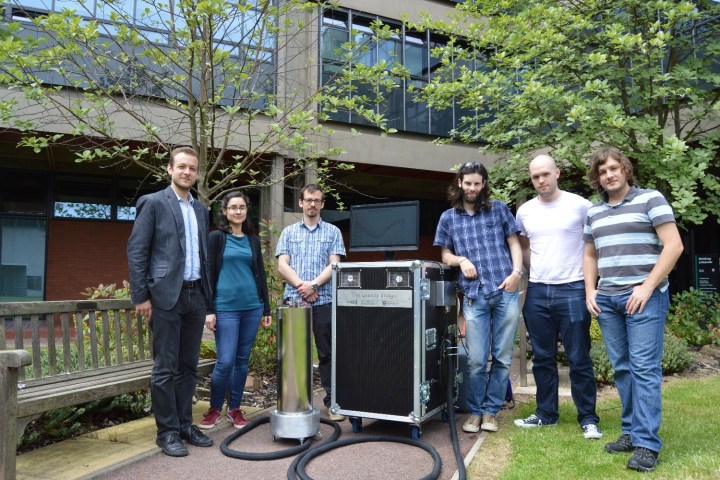
As sci-fi as the technology might sound, however, it does come with practical uses. The main one is helping work out unknown underground conditions — such as finding sinkholes or buried pipes for construction workers, carry out oil or mineral exploration, or establishing ground proof and long-term monitoring of shale gas and carbon sequestration sites.
“If you go even deeper, our sensors might open new possibilities to monitor magma flows, and provide input to earthquake and volcanic activity models, playing a role in the prevention of natural disasters,” Kai Bongs, a professor of Cold Atom Physics at the University of Birmingham, who helped develop the device, told Digital Trends.
Bongs explains that the gravimeter makes us of something called the superposition principle, allowing atoms to travel on two trajectories at once (consider the Schrödinger’s cat thought experiment, where the cat is simultaneously alive and dead). Laser pulses are then used to separate and recombine the trajectories along the direction of gravity, leading to interference fringes which are highly sensitive to the value of gravity.
“The exciting thing about our instruments are that they promise to speed up gravity measurements by over 100 times as compared to conventional technologies, and at the same time allow [us] to see things not currently visible,” Bongs continued. “The reason for these improvements is that they allow absolute, drift-free, measurements of gravity, and can be built to interrogate two vertically separated atomic clouds with the same laser beam, leading to an outstanding common-mode suppression of vibrational noise.”
At present, the gravimeter prototype is around one cubic meter, although the researchers hope that this could be shrunk down to make it more portable — and, therefore, versatile. According to Bongs, the first commercial prototype should be available in the next two years. Future versions could even be mounted on drones, which is something the team has already explored.
While this is not the only example of innovative technology we have come across that allows for the detection of information not readily accessible to the human eye, it certainly represents a significant step forward. Quantum technologies may not be mainstream just yet, but the gravimeter shows we are definitely moving toward a place in which robust quantum technologies are used in real-world environments.


